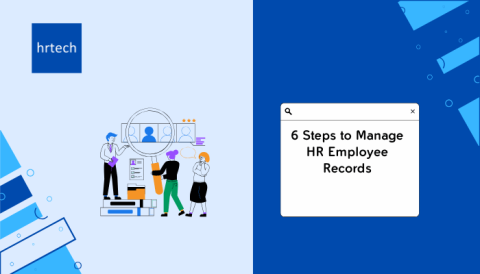Introduction
Hiring the right talent is one of the most critical tasks that HR professionals face. A bad hire can result in wasted resources, lost productivity, and costly rehiring processes. With fierce competition for top talent, hiring managers must ensure that they make informed decisions throughout the recruitment process. One of the best ways to streamline hiring and secure the best candidates is by using structured HR screening questions.
Leveraging the right HR technology can significantly streamline the recruitment process. Platforms like hrtech provide access to various solutions tailored to your needs.
This comprehensive guide provides essential HR screening questions to improve your hiring process and help organizations secure top talent.
Major Categories Of Screening Questions
A successful interview process involves a variety of screening questions that focus on different aspects of a candidate’s suitability for the job. These questions can be categorized into four key areas:
- Technical skills assessment – Determines a candidate’s ability to perform job-specific tasks.
- Soft skills evaluation – Assesses interpersonal skills, communication, and teamwork abilities.
- Personality and cultural fit – Ensures the candidate fits the company’s culture and values.
- Situational judgment questions – Tests problem-solving, decision-making, and leadership skills under pressure.
Explore comprehensive HR tools on hrtech’s platform that can help automate and enhance your screening process.
Each category plays a crucial role in selecting well-rounded candidates who are likely to succeed in the role. Let’s dive deeper into each of these categories and provide example questions to help enhance your hiring process.
1. Technical Skills Screening Questions
Hiring candidates with the right technical expertise is essential for job performance. These questions help evaluate practical knowledge and the ability to handle job-specific tasks.
Key technical skills to assess:
- Industry-specific expertise – Knowledge specific to the role.
- Technical proficiency – Ability to use software, tools, and technologies relevant to the job.
- Analytical and problem-solving skills – Ability to approach complex issues and provide solutions.
- Attention to detail – Precision and accuracy in work.
- Adaptability – Willingness to learn new technologies and methodologies.
General Technical Questions
- Can you describe your experience with [specific software/tool]? How proficient are you?
- What steps do you take to ensure accuracy in your work?
- Explain a complex technical problem you encountered and how you solved it.
- How do you stay updated on the latest industry developments and technologies?
- Have you ever trained someone on a technical process? How did you approach it?
- Can you walk us through a recent project where you applied your technical skills?
- What programming languages or software are you most comfortable using?
- How do you approach debugging and troubleshooting technical issues?
- Tell us about a time when you had to quickly learn a new technical skill.
- What are some of the most challenging technical tasks you’ve handled in your previous roles?
Role-Specific Technical Questions
For Software Developers & IT Professionals:
- Can you explain object-oriented programming principles in simple terms?
- Have you ever worked with APIs? Can you provide an example of how you used one?
- How do you handle version control in your projects?
- What steps do you take to optimize code for performance?
- Have you ever contributed to an open-source project?
For Data Analysts & Scientists:
- What data visualization tools are you familiar with?
- How do you clean and preprocess raw data before analysis?
- Can you describe a complex dataset you’ve worked with?
- Have you used machine learning in any of your projects?
- What steps do you take to ensure data accuracy and integrity?
For Engineers & Technical Specialists:
- What methodologies do you use for problem-solving in your field?
- Can you explain a challenging engineering project you worked on?
- What industry standards or regulations do you follow in your work?
- How do you ensure product safety and compliance?
- What tools do you use for designing, testing, or prototyping?
Evaluating Technical Expertise:
- Request work samples or portfolio reviews to verify technical skills.
- Ask open-ended problem-solving questions to gauge depth of knowledge.
- Use structured rubrics to objectively assess technical responses.
- Conduct practical tests or simulations to assess hands-on skills.
Consider utilizing advanced software available on the hrtech marketplace for efficient technical assessments.
Now that we’ve covered the essentials of technical proficiency, let’s shift gears and explore the critical soft skills every top talent must possess.
2. Soft Skills Screening Questions
Soft skills are essential in determining how well a candidate interacts with others, adapts to challenges, and contributes to a collaborative work environment.
Critical soft skills to evaluate:
- Communication – Clarity in conveying ideas and active listening.
- Teamwork – Ability to work effectively with others.
- Leadership – Taking initiative and motivating teams.
- Adaptability – Ability to handle change and unexpected challenges.
- Emotional Intelligence – Managing emotions and understanding others.
Communication & teamwork questions
- Describe a time when you had to explain a complex idea to someone unfamiliar with the topic.
- How do you ensure effective communication when working in a remote or hybrid environment?
- Have you ever had to mediate a conflict between two team members? How did you handle it?
- Can you share an experience where your ability to listen and understand a colleague’s perspective made a difference?
- How do you approach collaborating with teammates who have different working styles?
- Tell us about a situation where you had to adjust your communication style to be more effective.
- Have you ever worked in a team where someone wasn’t pulling their weight? How did you handle it?
- How do you provide constructive feedback without discouraging a colleague?
- Describe a time when you had to work with a difficult team member. How did you manage the situation?
- What steps do you take to ensure clarity and efficiency in team meetings or group projects?
Adaptability & problem-solving questions
- Share an instance where you had to quickly adapt to an unexpected change at work.
- Tell us about a time when you faced a major challenge. How did you approach and resolve it?
- How do you stay productive when dealing with multiple competing priorities?
- Have you ever been asked to take on responsibilities outside your job description? How did you handle it?
- Give an example of how you have handled constructive criticism and used it to improve.
- Describe a time when a project didn’t go as planned. How did you adapt?
- How do you keep up with changing industry trends and technologies?
- Have you ever had to deal with an unhappy client or customer? What was your approach?
- Can you share a time when you had to learn a new skill or tool quickly?
- What do you do when faced with a situation where you don’t know the answer?
Leadership & initiative questions
- Describe a situation where you took the lead on a project or task.
- How do you motivate and inspire others to achieve team goals?
- Tell us about a time when you had to make an important decision without direct supervision.
- Have you ever mentored or coached a junior colleague? How did you approach it?
- What leadership qualities do you think are most important, and how do you demonstrate them?
- Share an example of how you’ve handled a difficult decision that affected your team.
- How do you prioritize tasks and delegate responsibilities in a team setting?
- Have you ever had to persuade a team to adopt a new process or idea? How did you do it?
- What steps do you take to ensure your team stays motivated and engaged?
- How do you balance taking initiative with respecting team input and leadership decisions?
Emotional intelligence & conflict resolution questions
- How do you handle workplace stress and high-pressure situations?
- Can you share an example of how you maintained professionalism during a conflict?
- Tell us about a time when you had to manage your emotions in a difficult work situation.
- How do you approach giving and receiving constructive criticism?
- Describe a situation where you had to show empathy toward a colleague or client.
- Have you ever dealt with a difficult customer or client? How did you handle it?
- How do you build and maintain positive relationships with your coworkers?
- Share an example of how you de-escalated a tense or emotionally charged situation at work.
- Have you ever had to apologize to a coworker or manager? What was the situation, and how did you handle it?
- How do you handle situations where you strongly disagree with a colleague or manager?
Integrate communication and assessment tools from hrtech to better evaluate soft skills in prospective candidates.
3. Personality and Cultural Fit Screening Questions
A candidate’s personality and cultural fit are crucial for ensuring long-term success within your company. These questions help evaluate whether the candidate shares your company’s values and work style.
Work ethic & motivation questions
- What motivates you to perform your best at work?
- How do you stay productive and motivated when working on long-term projects?
- Describe a time when you went above and beyond your job responsibilities.
- How do you balance meeting deadlines while maintaining quality work?
- What aspects of a job make you feel most fulfilled?
- Have you ever had to push yourself outside your comfort zone to achieve something at work?
- Can you share an example of a time when you had to work extra hours or take on additional responsibilities to complete a project?
- How do you handle situations where you’re assigned a task you don’t particularly enjoy?
- What role does recognition or feedback play in your motivation at work?
- What do you consider your strongest personal value, and how does it influence your work?
Company values & mission alignment questions
- What attracted you to our company, and how do you see yourself contributing to our mission?
- How do you align with our company’s core values? (If applicable, provide a few key values for discussion.)
- What kind of work environment brings out your best performance?
- Tell us about a time when you worked for an organization with a strong company culture. How did it impact you?
- How do you handle situations where a company policy or decision conflicts with your personal values?
- What does workplace diversity and inclusion mean to you?
- Can you give an example of how you’ve contributed to a positive workplace culture in the past?
- Do you prefer structured or flexible work environments? Why?
- How do you react when company goals or strategies shift unexpectedly?
- If you could improve one thing about workplace culture in your previous job, what would it be and why?
Collaboration & work style questions
- How do you prefer to receive feedback—direct and immediate, or more structured and periodic?
- Do you thrive more in independent roles or team-based projects? Why?
- How do you build strong working relationships with new colleagues?
- Have you ever worked with a team that had a very different communication style from yours? How did you adjust?
- How do you handle disagreements with teammates in a professional setting?
- What’s your preferred method of communication in a workplace setting—email, chat, video calls, or in-person meetings?
- How do you ensure transparency and accountability when working on a team project?
- Can you share an example of how you adapted your working style to collaborate with different personalities?
- How do you handle situations where a team member doesn’t meet expectations?
- What steps do you take to create a positive and supportive team environment?
Attitude & growth mindset questions
- Tell us about a time when you received constructive criticism. How did you respond?
- How do you approach learning new skills or adapting to changes in your role?
- Have you ever failed at something professionally? What did you learn from the experience?
- What strategies do you use to maintain a positive attitude during challenging times?
- How do you handle setbacks or mistakes at work?
- What’s one professional skill you’re currently working to improve?
- How do you react when faced with an unfamiliar or complex task?
- What are your long-term career goals, and how do you plan to achieve them?
- Describe a time when you proactively sought out growth or development opportunities.
- How do you measure personal and professional success?
Work environment preferences & adaptability questions
- Do you prefer working in a fast-paced or more structured environment? Why?
- How do you handle ambiguity or uncertainty in a work setting?
- What’s your ideal balance between remote work and in-office collaboration?
- How do you manage your time when working in a remote or hybrid environment?
- Have you worked in a company with a flexible work culture before? How did you adjust?
- How do you stay engaged and connected with your team when working remotely?
- If given the choice, would you rather have a highly structured schedule or a more flexible one?
- How do you prioritize tasks when juggling multiple deadlines?
- Have you ever had to relocate or adjust to a completely new work culture? How did you handle it?
- What workplace benefits or policies are most important to you in fostering a positive work environment?
Utilizing personality assessment tools available through hrtech could provide deeper insights into candidate compatibility with company culture.
Now that we’ve delved into personality fit, let’s dive into how candidates handle real-world scenarios under pressure.
4. Situational Judgment Screening Questions
Situational judgment questions assess how candidates react to real-world scenarios, testing their critical thinking and leadership abilities under pressure.
Problem-solving & decision-making questions
- You are assigned a project with a tight deadline, but you realize halfway through that you underestimated the time required. What would you do?
- A colleague submits a report with several mistakes, and your manager asks you to fix it last minute. How would you handle this situation?
- You notice that a process your team follows is inefficient and slowing down productivity. How would you approach suggesting improvements?
- You are working on a group project, and one team member is not pulling their weight. How would you handle this situation?
- Your manager gives you conflicting instructions on a task. How do you proceed?
- You have multiple tasks due at the same time, but an urgent request comes in from a senior leader. How do you prioritize your work?
- A client requests a feature or service that your company doesn’t currently offer. How do you respond?
- You are given a project outside your area of expertise. How would you approach learning the necessary skills quickly?
- You made a mistake on an important project, but your manager hasn’t noticed yet. What do you do?
- You’re in a meeting where multiple team members strongly disagree on the best course of action. How do you contribute to finding a solution?
Conflict resolution & communication questions
- You disagree with a colleague about how to approach a project. How would you handle the situation?
- A customer is upset about a service issue and is raising their voice. How do you respond?
- A coworker takes credit for your idea in a meeting. What do you do?
- You have to deliver negative feedback to a colleague. How do you approach the conversation?
- Your manager criticizes your work in a way that you feel is unfair. How would you respond?
- A team member frequently interrupts or dismisses your ideas during discussions. How do you handle it?
- You receive an unclear email from a colleague and need clarification, but they are unavailable. How do you proceed?
- You are part of a team that disagrees on the division of work. How would you ensure fairness?
- A client insists on a solution that is not feasible. How do you communicate this effectively?
- You’re working remotely, and a miscommunication with a colleague causes delays. How do you address and prevent future issues?
Adaptability & handling pressure questions
- A last-minute change completely alters your project’s direction. How do you handle it?
- You’re given unexpected responsibilities that you weren’t initially hired for. How do you approach them?
- A high-priority task is suddenly added to your already packed schedule. How do you adjust?
- A technical failure occurs during an important client presentation. What do you do?
- You’re in a situation where you need to make a quick decision with limited information. How do you proceed?
- A new company policy is introduced that significantly changes your workflow. How do you adapt?
- You’re working on a collaborative project, and a key team member suddenly leaves. How do you manage the transition?
- Your company undergoes a major restructuring, and your role shifts. How do you handle the uncertainty?
- A competitor releases a game-changing product or service, affecting your company’s strategy. How do you react?
- You have to learn a completely new software tool for your job in a short time frame. How do you approach this challenge?
Ethical judgment & professionalism questions
- You accidentally overhear confidential company information. What do you do?
- A colleague asks you to cover for them when they are not actually sick. How do you respond?
- You suspect a coworker is misusing company resources. What steps do you take?
- You witness a colleague being treated unfairly by a manager. How do you handle it?
- Your manager asks you to report false data to make performance metrics look better. How do you respond?
- A vendor offers you a personal gift in exchange for influencing a company decision. What do you do?
- A friend applies for a job at your company, but you know they aren’t the best fit. How do you handle the situation?
- You notice a client being overcharged for a service. What do you do?
- Your team leader makes an offensive joke in a meeting. How do you address the situation?
- A mistake in a project benefits your company financially, and no one has noticed yet. What do you do?
Leadership & initiative questions
- You notice that a new hire is struggling with their onboarding process. How do you help?
- Your manager is unavailable, and your team needs to make an urgent decision. How do you proceed?
- A teammate is overwhelmed with work. How do you offer support without affecting your own responsibilities?
- You identify an opportunity to improve efficiency in your department. How do you bring it up to leadership?
- You see an opportunity to take on additional responsibilities that could help your team. How do you approach your manager about it?
- A colleague is continuously missing deadlines, affecting the entire project. What steps do you take?
- You notice a decline in team morale. How would you contribute to boosting motivation?
- Your company is expanding into a new market. How do you take initiative in learning and contributing to this change?
- A junior colleague asks for mentorship, but you’re busy with your own tasks. How do you balance helping them while managing your workload?
- Your team is falling behind schedule on a major project. How do you take initiative to get things back on track?
Simulations and practical tests available on hrtech’s platform can provide a hands-on approach for assessing situational judgment.
Having discussed the importance of ethics and professionalism, let’s share some tips on crafting the right HR screening questions to get the best out of your candidates.
Tips for Crafting the Right HR Screening Questions
To ensure your HR screening questions are effective and provide meaningful insights into candidates’ qualifications, follow these tips:
- Be specific and relevant – Tailor your questions to the specific job role and required skills. Avoid generic questions that may not accurately assess a candidate’s ability for the particular position.
- Incorporate behavioral questions – Behavioral questions help candidates provide real-life examples, offering better insights into how they handle challenges and perform in different situations.
- Mix question types – Include a variety of question types—open-ended, situational, and technical—to get a complete picture of the candidate’s qualifications.
- Keep it clear and concise – Ask direct, simple questions to ensure you get clear, actionable answers. Avoid overly complex or vague questions that can confuse candidates.
Do’s and Don’ts of HR Screening
To improve your HR screening process, keep these do’s and don’ts in mind:
| Do’s: | Don’ts: |
| Do ask open-ended questions: These allow candidates to provide detailed responses, showcasing their thought processes.Do stay consistent: Use the same set of questions for all candidates to ensure fairness and consistency in your evaluations.Do create a comfortable environment: Make sure the interview setting is conducive to open communication, encouraging candidates to be themselves.Do follow up for clarification: If a candidate’s response is unclear or incomplete, ask them to elaborate for a more thorough understanding.Do listen actively: Pay attention to both verbal and non-verbal cues, as they can provide additional insight into the candidate’s suitability. | Don’t ask discriminatory questions: Avoid personal questions about marital status, religion, or age that are irrelevant to the job.Don’t ask yes/no questions: These questions limit a candidate’s ability to showcase their full range of skills and experiences.Don’t overload with technical questions: Balance technical questions with soft skills and personality assessments for a well-rounded evaluation.Don’t interrupt: Give candidates time to fully answer each question. Interrupting may cause them to lose their train of thought.Don’t rely solely on gut feelings: Use objective criteria and scoring rubrics to minimize biases in your hiring decisions. |
Consider integrating hrtech’s suite of innovative tools designed to enhance and automate parts of the HR screening process, ensuring compliance and efficiency.
Additional Screening Tips to Identify Top Talent
- Check references thoroughly: Verify a candidate’s previous job performance through references to ensure their claims are accurate.
- Use case studies and simulations: Use real-world scenarios to assess problem-solving abilities and to see how candidates perform under pressure.
- Review professional social media profiles: Look at LinkedIn or other professional profiles to get additional insights into their career history and professional network.
- Simulate job scenarios: Role-playing or job simulations provide a practical way to evaluate candidates in situations similar to those they would face on the job.
Conclusion
Effective candidate screening is the foundation of a successful hiring process. By incorporating technical, soft skills, personality, and situational judgment questions, you can gain deeper insights into a candidate’s abilities and cultural fit. The right mix of structured and open-ended questions ensures that you hire individuals who not only have the required skills but also align with your company’s values and long-term goals.
However, managing the hiring process efficiently requires the right technology. This is where hrtech comes in!
Whether you need tools for candidate screening, applicant tracking, or performance management, hrtech offers the most relevant content and fast-loading resources to help streamline your HR operations.
Explore the latest HR solutions today! Visit hrtech and transform your hiring process.





